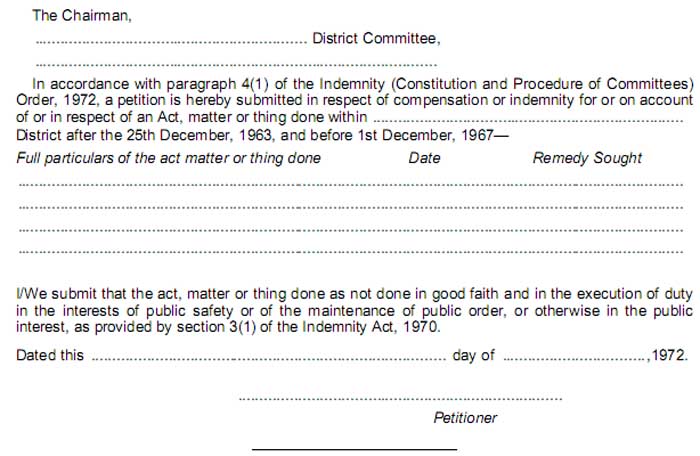|
|||
|
Act No: CAP. 44
Act Title: INDEMNITY
SUBSIDIARY LEGISLATION
|
|||
|
INDEMNITY (CONSTITUTION AND PROCEDURE OF COMMITTEES) ORDER, 1972
[L.N. 21/1972.]
SCHEDULE
[Rule 4.]
PETITION
|







